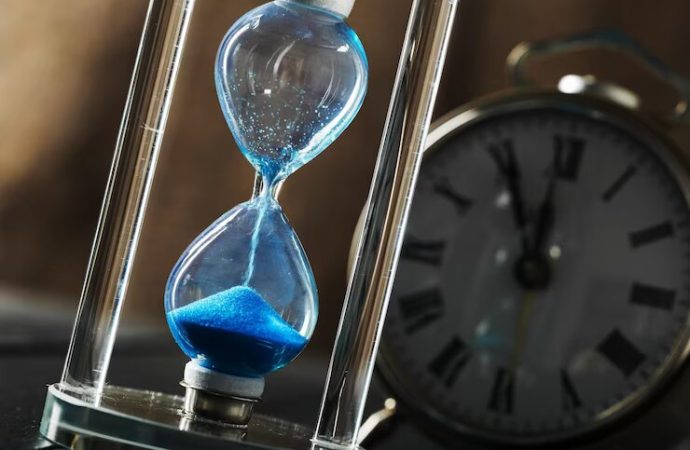Introduction Tick-tock, tick-tock. The sound of a clock ticking away is a familiar one to all of us, but have you ever stopped to consider the relationship between time and your own heartbeat? A fascinating new study has set out to explore just that – and the results are sure to surprise you. By examining
Introduction
Tick-tock, tick-tock. The sound of a clock ticking away is a familiar one to all of us, but have you ever stopped to consider the relationship between time and your own heartbeat? A fascinating new study has set out to explore just that – and the results are sure to surprise you. By examining how our heartbeats impact the way we perceive time, researchers have uncovered some intriguing insights into the ways in which our bodies and minds are intrinsically linked. So if you’re curious about what makes us tick (quite literally), read on to discover more!
What the study found
A recent study has found that there may be a link between heart rate and time perception. The study, published in the journal PLOS ONE, found that participants who had a higher heart rate tended to perceive time as passing more quickly than those with a lower heart rate.
The study was conducted by researchers at the University of Edinburgh in the UK. They recruited 60 participants, 30 of whom had a high heart rate (> 100 beats per minute) and 30 of whom had a low heart rate (< 60 beats per minute). All of the participants were asked to complete two tasks: a time estimation task and a temporal bisection task.
In the time estimation task, participants were shown a series of images (e.g., a person walking, a car driving) and were asked to estimate how long each image lasted for. In the temporal bisection task, participants were shown a series of images and were asked to categorize them as either “short” or “long” duration.
The results of the study showed that participants with a high heart rate underestimated time in both tasks, while participants with a low heart rate overestimated time in both tasks. This suggests that there may be a link between heart rate and time perception.
These findings are interesting because they suggest that our internal clocks may be influenced by our physical state. For example, if we are feeling anxious or stressed, our heart rate will increase and we may perceive time as passing more quickly
How this could impact our understanding of time perception
When it comes to time perception, it seems that our heart may have more of an impact than we realized. A new study has explored the link between heartbeat and time perception, and the findings could have some pretty significant implications.
For the study, participants were asked to estimate the duration of a series of tones. The researchers found that when the tones were presented in synchronization with the participants’ heartbeat, they were more likely to underestimate the duration of the tone. This suggests that our heart may play a role in how we perceive time.
The findings from this study could have some pretty big implications for our understanding of time perception. It’s possible that our heart plays a much bigger role in how we experience time than we previously thought. This could mean that interventions aimed at manipulating heart rate could potentially be used to alter someone’s perceptions of time.
This research is still in its early stages, but it’s definitely something that warrants further exploration. It’ll be interesting to see what future studies uncover about the link between heartbeat and time perception.
Further research needed
There is much that still remains unknown about the link between heartbeat and time perception. Studies have shown that there is a connection between the two, but there is much more research needed in order to fully understand how and why this connection exists.
It is possible that the connection between heartbeat and time perception has to do with the way that our brains process information.Heartbeat is one of the many input signals that our brains receive, and it may be that our brains use this signal to help keep track of time. This theory is supported by the fact that people who have had their heart rate artificially slowed down (through medication or other means) often report feeling as though time has slowed down for them as well.
Another possibility is that the connection between heartbeat and time perception has to do with our body’s natural circadian rhythms. Our bodies are designed to operate on a 24-hour cycle, and our heartbeat is one of the cues that helps keep us in sync with this cycle. It’s possible that when our heartbeat is out of rhythm, it can throw off our perception of time.
Further research into this topic could help us to better understand how our brains process information and how we perceive time. It could also lead to new treatments for conditions like anxiety and depression, which are often characterized by disruptions in circadian rhythms.
Implications of the findings
The findings of the study have implications for our understanding of how the heart and brain interact to influence our perception of time. The results suggest that the heart may be involved in setting the pace of our internal clock, and that disruptions to this process may contribute to disorders of time perception.
Conclusion
In conclusion, this new study has provided important insight into how our hearts might be connected to our perception of time. By tracking people’s heartbeats and measuring their responses to timing tasks, the researchers were able to show that the heartbeat is linked to temporal processing in humans. This research opens up exciting possibilities for exploring further connections between the body and mind and could potentially lead to new treatments for disorders impacting both physical health and mental wellbeing.





















Leave a Comment
Your email address will not be published. Required fields are marked with *